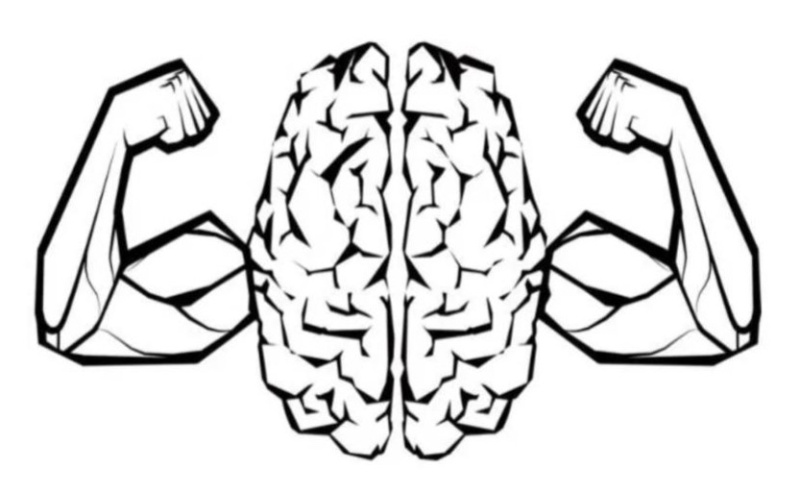Someone with an intellectual disability has issues with intellectual functioning and adaptive functioning. Intellectual functioning is often measured by an IQ test, a score around 70 constitutes intellectual dysfunction. Overall, someone with low intellectual functioning may have problems with reasoning, problem solving, abstract thinking, or judgment. Adaptive functioning includes empathy, social skills, communication, personal care, money management, and job responsibilities. The onset of symptoms begins during a developmental period of life, like early childhood. Causes of intellectual disability include genetic conditions, viral infection, exposures to toxins, or head trauma. Some of this may happen during pregnancy or birth.1
Nootropics
There are ways to enhance neuronal activity. One route is through nootropics. Nootropics activate cognitive functions like memory and learning. They especially help in cases where there is damage or degeneration of the brain. Nootropics are used for treating cognitive issues in Alzheimer’s and schizophrenia. Some nootropics are used by students to help with studying. But use of nootropics in healthy individuals is not studied extensively for effectiveness.2 Overall, Nootropics are safe with some occasional complications case to case. Thus, it is important to consult a doctor before supplementing with nootropics regardless of the presence of cognitive issues or not.
Nootropics and Intellectual Disability
One thing nootropics can do is increase brain derived neurotropic factor, BDNF. BDNF plays a role in repairing damage in the brain and memory. A large player in intellectual disability is BDNF. In intellectual disability, BDNF is low.3
Ashwagandha (figure 1) is a popular nootropic that is a wood-like plant often ground up into a powder and put into capsules. It has been used for about 3000 years in ancient India, specifically a medical practice called Ayurvedic. In supplementation of Ashwagandha, it was found to increase executive functioning, sustained attention, and memory.4

Figure 1. Ashwagandha plant and ashwagandha powder.
In a study with a high fat diet in rats, cognitive deficits were created. The high fat diet rats were compared to rats with a regular diet and supplementation with ashwagandha and rats with a high fat diet and ashwagandha supplementation. Each of the rats treated with ashwagandha showed an improvement of cognition as well as higher BDNF production compared to the high fat diet rats.5 Because of this finding of increased BDNF with ashwagandha supplementation, it would be worth it to see if ashwagandha could help treat intellectually disability specifically. But this has yet to be studied.
Food Nootropics
Nootropics do not have to come in the form of a pill. To increase BDNF you can simply eat. Foods that may help include dark chocolate, blueberries, extra-virgin olive oil, and fish with good omega-3 fatty acids. Generally, antioxidants, magnesium, curcumin, and zinc are some things to look for.6
It is important to note that BDNF levels are different in each person and you to not have to have an intellectually disability to want to increase your BDNF. People usually start worrying about their cognitive decline when they are in their 60s, but cognitive decline gradually starts at 24 years old with it speeding up around 40 years old.7 It is not too early to start supporting your cognitive health.
- American Psychiatric Association. (2021). What is Intellectual Disability? https://www.psychiatry.org/patients-families/intellectual-disability/what-is-intellectual-disability
- Matěj, M., & Pavel, T. (2022). Nootropics as cognitive enhancers: types, dosage and side effects of smart drugs, 14(3367), 3367–3367. https://doi.org/10.3390/nu14163367
- Morè, L., Lauterborn, J. C., Papaleo, F., & Brambilla, R. (2020). Enhancing cognition through pharmacological and environmental interventions: examples from preclinical models of neurodevelopmental disorders. Neuroscience and Biobehavioral Reviews, 110, 28–45. https://doi.org/10.1016/j.neubiorev.2019.02.003
- Xing, D., Yoo, C., Gonzalez, D., Jenkins, V., Nottingham, K., Dickerson, B., Leonard, M., Ko, J., Faries, M., Kephart, W., Purpura, M., Jäger, R., Sowinski, R., Rasmussen, C. J., & Kreider, R. B. (2022). Effects of acute ashwagandha ingestion on cognitive function. International Journal of Environmental Research and Public Health, 19(19), 11852–11852. https://doi.org/10.3390/ijerph191911852
- Manchanda, S., & Kaur, G. (2017). Withania somnifera leaf alleviates cognitive dysfunction by enhancing hippocampal plasticity in high fat diet induced obesity model. Bmc Complementary and Alternative Medicine, 17(1), 136–136. https://doi.org/10.1186/s12906-017-1652-0
- Strong Coffee Company. (2020). How to increase your BDNF: 10 ways to rescue your brain. https://strongcoffeecompany.com/blogs/strong-words/how-to-increase-bdnf-10-ways-to-rescue-your-brain
- Onaolapo, A. Y., Obelawo, A. Y., & Onaolapo, O. J. (2019). Brain ageing, cognition and diet: a review of the emerging roles of food-based nootropics in mitigating age-related memory decline. Current Aging Science, 12(1), 2–14. https://doi.org/10.2174/1874609812666190311160754
